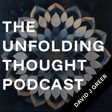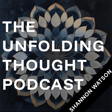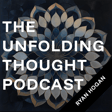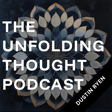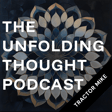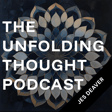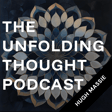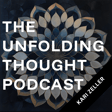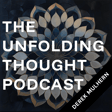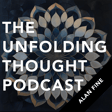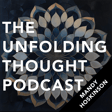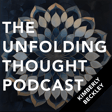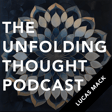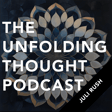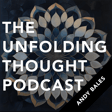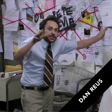
18–Adam Wallace – Overcoming Constraints to Capture Value
In this episode of The Unfolding Thought Podcast, host Eric Pratum chats with Adam Wallace, who has spent a career solving the puzzle of why good plans so often fail in execution. Adam’s background spans broadway technical direction, multi-billion dollar oil projects, enterprise software rollouts, and now a family office portfolio. Across these diverse domains, he’s seen the same patterns: people aim for the “promised land,” but hidden assumptions, outdated incentives, and unspoken constraints stop them from acting on what they say they want.
Together, Eric and Adam explore:
- From Corporate Fixer to Family Office: How Adam’s narrow skillset in value creation and alignment has turned into multiple investments.
- Pinpointing the “Why” Behind Stalled Projects: Surfacing the real reasons teams say yes in meetings but fail to follow through.
- The Power of Constraints: That New Mexico oil well story—where a manager wouldn’t buy enough belts because of a $100k monthly budget—reveals how small barriers derail big visions.
- Pricing & “Revalue”: Aligning what you do with what customers truly cherish so you can charge more and still deliver better.
- In-Person Experiences in a Digital Age: Why Adam thinks experiential marketing and live events may be poised for major growth—even as AI transforms how we engage online.
If you’ve ever wondered how organizations can remove “foot on the brake” moments or re-align around value instead of just vision, Adam’s practical stories and insights reveal a path to capturing new opportunities—without the usual friction.
Links:
- Adam’s website: https://adamwallace.com
- TGN (Executive Mobilization): https://www.tgn-consulting.com
- (Re)Value: Raise Your Prices and Build Your Legacy: https://amzn.to/4k5ZFcf
- Episode with Andy Hite: https://unfoldingthought.com/14-andy-hite-from-broadway-to-the-boardroom-empowering-leaders-and-teams/
- Episode with Kevin Hughes: https://unfoldingthought.com/12-kevin-hughes-branding-athletes-and-rewriting-the-rules-of-sports-marketing/
- Execution Certainty: https://lumeri.com/execution-certainty/
- GDX Studio: https://www.gdxstudios.com
For more episodes, visit: https://unfoldingthought.com
Join the conversation by emailing Eric at: eric@inboundandagile.com
